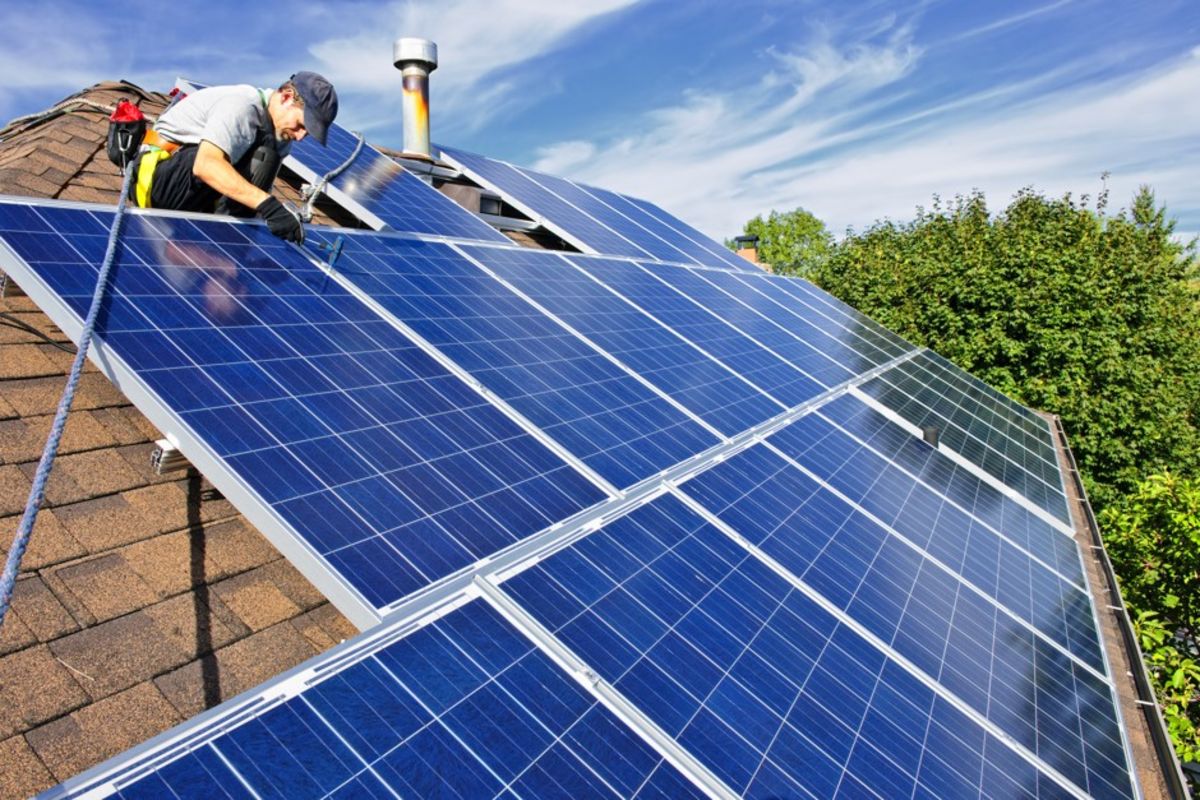Solar panel
A solar panel is a device that converts sunlight into electricity by using photovoltaic (PV) cells. PV cells are made of materials that produce excited electrons when exposed to light. These electrons flow through a circuit and produce direct cureent (DC) electricity, which can be used to power various devices or be stored in batteries. Solar panels are also known as solar cell panels, solar electric panels, or PV modules.

Solar panels are usually arranged in groups called arrays or systems. A photovoltaic system consists of one or more solar panels, an inverter that converts DC electricity to alternating current (AC) electricity, and sometimes other components such as controller, meter, panel. Most panels are in solar farms or rooftop solar panel which supply electricity system.
Some advantages of solar panels are that they use a renewable and clean source of energy, reduce greenhouse gas emission. and lower electricity bills. Some disadvantages are that they depend on the availability and intensity of sunlight, require cleaning, and have high initial costs. Solar panels are widely used for residential, commercial, and industrial purposes, as well as in space, often together with batteries.
Roof-mounted solar power systems
Roof-mounted solar power systems consist of solar modules held in place by racks or frames attached to roof-based mounting supports. Roof-based mounting supports include:
- Rail mounts, which are attached directly to the roof structure and may use additional rails for attaching the module racking or frames.
- Ballasted footing mounts, such as concrete or steel bases that use weight to secure the panel system in position and do not require through penetration. This mounting method allows for decommissioning or relocation of solar panel systems with no adverse effect on the roof structure.
- All wiring connecting adjacent solar modules to the energy harvesting equipment must be installed according to local electrical codes and should be run in a conduit appropriate for the climate conditions
